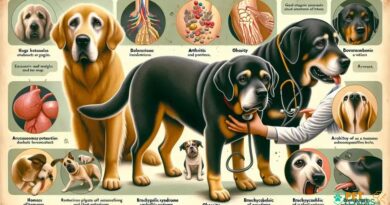Yellow Vomit in Dog: What You Must Know Immediately!
Yellow vomit in dogs may signal health issues such as gastrointestinal upset, bile accumulation, or pancreatitis. It’s crucial to observe for additional symptoms and consult a veterinarian if vomiting continues. Preventive care includes a balanced diet and regular veterinary check-ups to ensure your dog’s well-being.
Having a dog is a joyful experience, but encountering yellow vomit in dog can be alarming for any pet owner.
This condition may signal underlying health issues that require attention.
In this article, we’ll dive into common causes of yellow vomit, discuss when it’s crucial to consult a vet, and highlight preventive measures to keep your furry friend healthy.
Common Causes of Yellow Vomit in Dogs
Common Causes of Yellow Vomit in Dogs include various health issues that pet owners should be aware of. One frequent cause is gastrointestinal upset, which can arise from dietary changes, overeating, or consuming something that doesn’t agree with them. In some cases, bile buildup can lead to yellow vomiting, particularly if a dog has not eaten for an extended period. Additionally, intestinal blockages or infections may also cause this symptom, indicating a more serious problem that needs attention.
Another reason for yellow vomit could be pancreatitis, where the pancreas becomes inflamed, leading to digestive issues. If your dog is experiencing yellow vomit, consulting a veterinarian promptly is recommended to rule out any potentially life-threatening conditions.
When to Seek Veterinary Help
If your dog is experiencing yellow vomit, it’s important to seek veterinary help immediately.
Early intervention can be key in preventing serious health issues. Watch for additional symptoms such as lethargy, diarrhea, or loss of appetite. These signs may indicate that your dog is suffering from a more serious condition.
If vomiting persists or your dog shows signs of distress, don’t wait; consult with your veterinarian as soon as possible.
Regular check-ups can also help detect underlying problems before they escalate.
Preventive Measures for Dogs
Preventive Measures for Dogs can help reduce the risk of yellow vomit and other gastrointestinal issues. First, ensure your dog has a balanced diet that meets their nutritional needs. Avoid sudden changes in food, which can cause stomach upset. Always provide fresh water to prevent dehydration, especially during hot weather or after physical activity.
Regular exercise is also essential for maintaining your dog’s digestive health. Proper weight management can prevent obesity-related issues that might lead to vomiting. Additionally, keep an eye on what your dog consumes outdoors; prevent access to toxic plants and foreign objects that could cause blockages.
Routine veterinary check-ups can catch potential health issues early. Vaccinations and preventive medications, like those for parasites, can also help maintain your dog’s overall health.
In Summary: Addressing Yellow Vomit in Dogs
Yellow vomit in dogs can be concerning, but understanding its causes, knowing when to seek veterinary help, and implementing preventive measures can make a significant difference.
Always monitor your dog’s behavior, feeding habits, and health to catch any issues early.
Regular veterinary check-ups can help ensure your dog remains healthy and happy.
By being proactive, you can protect your furry friend from potential health problems related to yellow vomiting.
Frequently Asked Questions about Yellow Vomit in Dogs
What are common causes of yellow vomit in dogs?
Common causes include gastrointestinal upset, bile buildup, pancreatitis, and intestinal blockages.
When should I seek veterinary help for my dog?
You should seek help if vomiting persists, or if your dog shows symptoms like lethargy, diarrhea, or loss of appetite.
What preventive measures can I take to avoid yellow vomit in dogs?
Providing a balanced diet, ensuring fresh water, regular exercise, and routine vet check-ups are essential preventive measures.
Is yellow vomit always a sign of a serious problem?
Not always, but it can indicate underlying issues; monitoring your dog’s health and behavior is crucial.
What dietary changes should I avoid to prevent vomiting in my dog?
Avoid sudden changes in diet and giving your dog human food that can upset their stomach.





